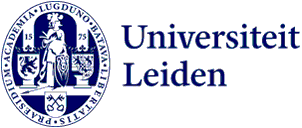
Leiden-developed drug candidate ready for final clinical trial phase
Bringing your drug candidates to patients is what many academic chemists dream about, but the road to this goal is long and bumpy. Now, Leiden small molecule nizubaglustat is ready for phase 3 clinical trials. This is thanks to a €132 million funding secured by the biotech spin-out Azafaros.
Phase 3 is the last stage a drug candidate needs to pass to become eligible for admission to the market. It happens only rarely that molecules discovered in academia reach this phase. The drug candidate, nizubaglustat, was developed by the teams of Hermen Overkleeft, Stan van Boeckel and Hans Aerts. Overkleeft: ‘It is really rewarding to see the results of decades of research between my lab and that of Hans progress to this stage. I sincerely hope Azafaros will succeed in its program to get registration of this new drug so that these devastating diseases for which currently no satisfying solutions exist can be treated.’
The drug candidate, nizubaglustat, offers new treatment options for patients suffering from the rare lysosomal storage disorders, GM1/GM2 gangliosidoses and Niemann-Pick disease type C (NPC). These rare genetic disorders often cause progressive neurodegeneration with, in many cases, fatal outcomes.
Azafaros secured funding for the two indications, GM1/GM2 and NPC and aims to recruit 70 patients in each study. The phase 3 studies are projected to take 18 months, and to be carried out across 35 different centers. If successful, introduction to the market may take place at the end of 2028.
About nizubaglustat
Nizubaglustat is an orally available sugar-like molecule. It uniquely acts as a brain-permeable inhibitor of two enzymes in glycosphingolipid metabolism, which maintains the balance of complex membrane lipids. Nizubaglustat treatment leads to beneficial corrections in glycosphingolipids and related metabolites in NPC and gangliosidoses, with potential broader application for similar disorders.
‘This successful financing round marks a significant milestone for Azafaros, allowing us to accelerate the development of nizubaglustat,’ says Stefano Portolano, Chief Executive Officer at Azafaros. ‘We look forward to bringing nizubaglustat to patients.’ The company, founded in 2018 by BioGeneration Ventures (BGV) partnering with the Leiden Libertatis Ergo Holding (LEH), expects to initiate phase 3 clinical trials in NPC and GM1/GM2 gangliosidoses patients later this year.

The beginning of more successful Leiden drug development
‘This is a fantastic example of how fundamental research at Leiden University can be developed to the point where it has the potential to make a real difference to people’s lives,’ says Sara Cigna, Business Developer Life Sciences at Leiden University. ‘Luris, the Knowledge Transfer Office of Leiden University, is here to support all academics in putting their ideas into practice.’
Overkleeft hopes that this achievement, which started with curiosity-driven research, will be followed by other successful Leiden drug discoveries and developments. For this purpose, the Leiden Early Drug Discovery & Development initiative (LED3) was established around five years ago. Within LED3, the Leiden Science institutes LIC, LACDR, IBL and LIACS join forces to address the challenge to find effective treatments for a range of diseases. ‘This important milestone highlights the expertise of the LED3 network in pioneering small molecule drug candidates that have the potential to impact human health’, says Mario van der Stelt, expert in molecular physiology and drug discovery at the LIC and one of the initiators of the LED3 network.
